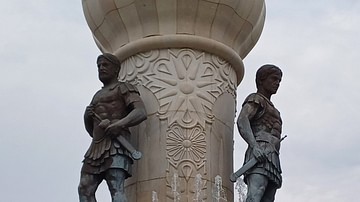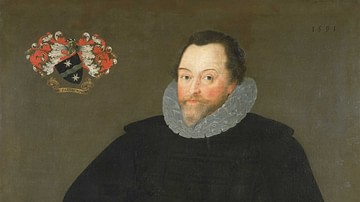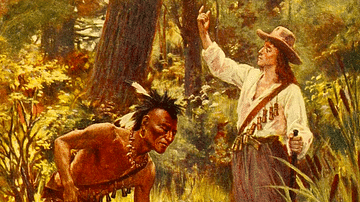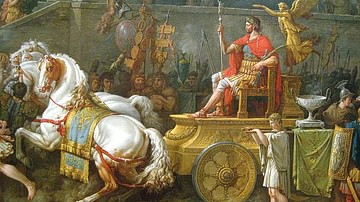Search
Search Results

Definition
King William's War - The First Great Colonial War Between England and France
King William’s War (1688-1697) was the first of four major colonial conflicts fought between England, France, and their respective Native American allies in the 17th and 18th centuries. Though the war had its own unique origins, it coincided...

Image
King Philip (Metacom)
Philip, King of Mount Hope, line engraving depicting Metacom (also known as King Philip, l. 1638-1676), colored by hand, by the American engraver and silversmith Paul Revere, illustration from page 88 of The Entertaining History of King Philip's...

Definition
Amphictyonic League
The Amphictyonic League was an early form of religious council in ancient Greece. It was typically composed of delegates from several tribes or ethnes living in the vicinity of a major, prosperous sanctuary, who then collaborated in supervising...

Image
Colossal Statues of Philip II and Alexander III in Skopje
Colossal statues of Philip II of Macedon (r. 359-336 BCE) and Alexander the Great (r. 336-323 BCE) in Skopje. The Skopje 2014 (2010-2014) was a project involving the construction of 136 monumental buildings, bridges, statues, and fountains...

Definition
Francis Drake
Sir Francis Drake (c. 1540-1596 CE) was an English mariner, privateer and explorer who in 1588 CE helped defeat the Spanish Armada of Philip II of Spain (r. 1556-1598 CE) which attempted to invade the kingdom of Elizabeth I of England (r...

Article
Battle of Crécy
The Battle of Crécy on 26 August 1346 CE saw an English army defeat a much larger French force in the first great battle of the Hundred Years' War (1337-1453 CE). Edward III of England (r. 1327-1377 CE) and his son Edward the Black Prince...

Definition
Schmalkaldic War
The Schmalkaldic War (1546-1547) was fought between the Protestant Schmalkaldic League and the Catholic armies under Charles V, Holy Roman Emperor, who, having failed to achieve religious unity of his subjects at the Diet of Augsburg in 1530...

Image
Philip of Anjou is Crowned King of Spain
Philip of Anjou is crowned King of Spain in November 1700 (and so becomes Philip V of Spain), setting off the War of the Spanish Succession. By François Gérard, early 19th century, oil on canvas. (Château de Chambord Collection)

Image
Death of King Philip or Metacom
An early 20th-century illustration showing the death of King Philip, aka Metacom (l. 1638-1676) who led a coalition of Native American tribes in King Philip’s War (aka Metacom’s War, 1675-1678) against English colonists.

Definition
Battle of Pydna
The Battle of Pydna in June 168 BCE was a decisive Roman victory that ended the Third Macedonian War and established Rome as the dominant power in the Mediterranean. The Roman Republic was expanding, enlarging its sphere of influence along...